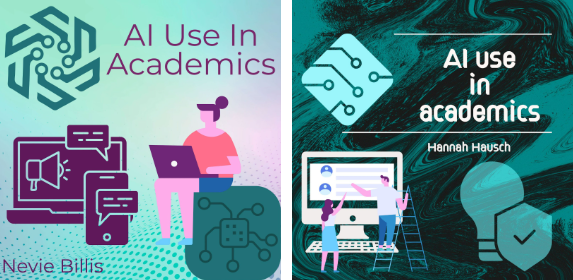AI Use In Academics

February 13, 2023
In Nov. 2022, the company OpenAI released their new artificial intelligence writing program, Chat Generative Pre-trained transformer (ChatGPT). According to the New York Times, OpenAI’s goal is “to build more advanced chatbots.” In his interview with the New York Times, Aaron Levie, a chief executive of a silicon valley company, stated that “[there is] a computer that can answer any question in a way that makes sense to a human.” Recently, there has been an increasing number of students who abuse this software by prompting it to write their academic papers. These students face severe consequences such as suspension and even expulsion from their schools for this plagiarism. The use of ChatGPT in an academic setting is detrimental to the conventional methods of education.
Ms. Vazquez, an English teacher at Briar Woods, voiced her concerns about the use of ChatGPT by students. When asked if she has seen any of her students use this software, she said “not that I am aware of.” In her words, AI may be harmful towards the field of literature in the sense that “AI is not in the student’s words or ideas. Based on articles I’ve read online, my understanding is that these AI’s are generating these essays, but most of the time professors are intercepting these essays and they do not make sense or they’ve taken snippets of the writing prompt and the essay does not answer the writing prompt.”
Teachers, including Ms. Vazquez, believe that AI writing is harmful towards a student’s education. To prevent the use of AI in an academic setting, she suggested that “we have to go back to an old fashioned way of writing, which is paper and pencil and writing essays in class, and seeing what the students actually understand based on whatever it is they’re reading or whatever the teacher asks them to write about.”
Zach Johnson, a senior enrolled in Dual Enrollment English at Briar Woods, expressed his opinions on the use of AI writing. He said that “AI writing will be a tool anyone can use to improve their own work.” Johnson backed up his claim by explaining that AI allows multiple individuals to “increase [their] productivity” and it helps others have a “deeper [sense in] learning.”
Stefanie Hausch, a professor who teaches Psychology at George Mason, views AI writing as detrimental to creativity. While it is an evolving technology, Dr. Hausch expressed concern that it will replace the human element. Furthermore, she explains that “as an educator, I would include, first of all, that AI is prohibited in the syllabus and also, I think that development of the AI software that would detect the usage of AI would be helpful, for example, the plagiarism software, TURNITIN.”
In the case that a student were to use AI writing in their work, it could be seen as a sign that they are struggling and they need some extra help. Contrarily, Ms. Vazquez said that “because I teach Dual Enrollment and I’m teaching for NOVA, to me it’s a sign of cheating. I am very upfront with my students and I tell them if [they] do not understand something, then come and see me during office hours. So if they’re not and [instead] they’re going out of their way to cheat, it is not going to be favorable for them. I’d rather work with [a] student than see them using a tool that I have not approved of or that any institution in the world approves of.”

